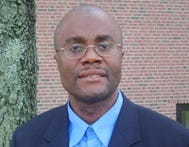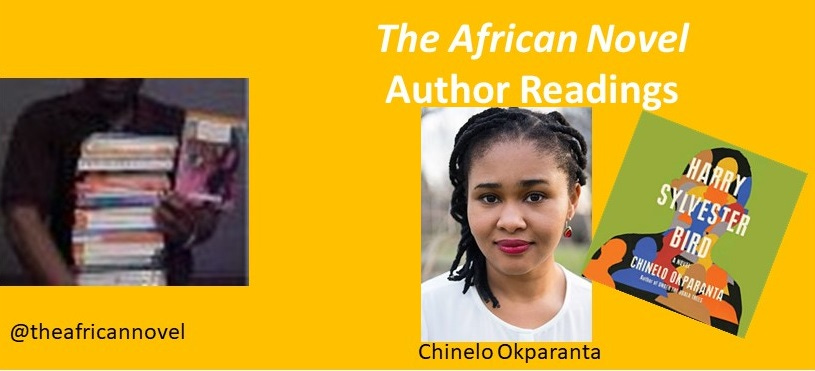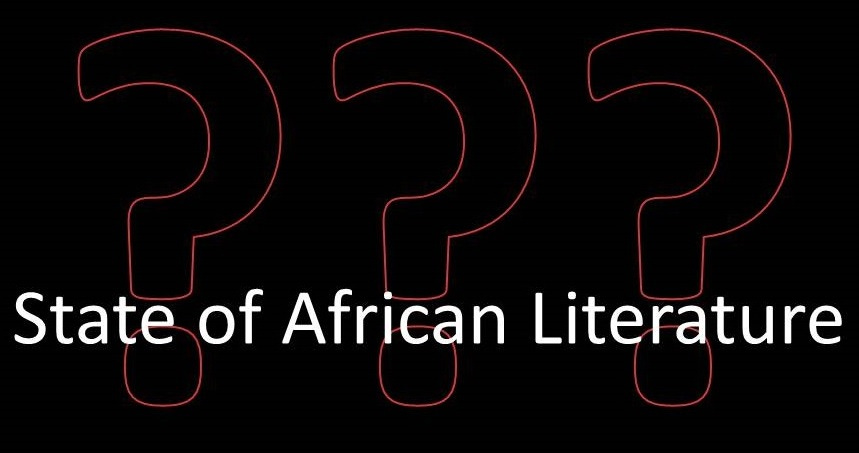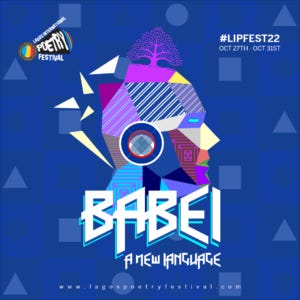Welcome to the latest issue of The African Novel digital newsletter. You have joined an exciting global community of publishers, authors, readers, writers, poets, performers, as well as academics, missionaries, and even current and former Peace Corps volunteers. We are all connected in our passion for appreciating, celebrating, and sharing African literature and performance in their many forms.
To savor this e-newsletter, we’d highly recommend you patiently read from top to bottom!
IN THIS ISSUE
Editor-in-Chief's Message
Book Review: One is Enough
The African Novel Podcast: Patricia Jabbeh Wesley
Author Readings: Chinelo Okparanta
State of African Literature
Bookshelf
Book Events & More
Our Radio Archives
African Proverb: Cameroonian
Editor-in-Chief’s Message
In the July issue of The African Novel newsletter, I posed three questions that come up frequently these days: Are writers of African fiction taking the literary world by storm? Is the tide turning for African literature in America and the rest of the West? Are we witnessing a renaissance of African literature in our social-media-connected global village today?
I must state categorically here that these questions are not popping out of thin air. Rather, they represent interrogations that appear to be taking up a significant amount of time, space, and ink in some circles — literary, media, and others. Consider a Jan. 2, 2022 guest essay by Jeanne-Marie Jackson in the New York Times, declaring, like others of her ilk, that “2021 was the year for African literature.” Jackson, of course, is the author of “The African Novel of Ideas” and associate professor of English at Johns Hopkins University. (Professor Jackson, if you are reading this, keep in mind that we’d like to meet you asap).
Consider also Al Jazeera’s Dec. 23, 2021 headline: “African authors took the literary world by storm in 2021.”
Against this backdrop, we are introducing a new feature in this issue of The African Novel newsletter titled: “3 Questions on the State of African Literature.” Our effort is simply to pose the questions to writers, authors, poets, and others and bring you their unfiltered answers in their own voices here. We would appreciate readers’ comments and feedback, and we reserve the right to publish them in the newsletter.
Finally, I would note that we have dropped some other features we ran in past newsletter issues like “Memorable Lines,” “Off the WRITE Path,” and “Common Ground.” As a reader of this newsletter, always let us know what you enjoy the most or the least about its contents.
Enjoy!
Cyril Ibe, Ph.D
P.S. Perhaps a friend forwarded this email to you. Sign up now to receive The African Novel directly in your inbox.
Share the enjoyment of reading The African Novel digital newsletter with a friend, family member, or colleague.
Book Review
Title: One is Enough
Author: Flora Nwapa
Publisher: Africa World Press
Reviewer: Benjamin Kwakye
In Flora Nwapa’s One is Enough, Amaka has just received notice from her mother-in-law that she is persona non grata in her husband’s household. Why? Amaka, it appears, is incapable of having a child.
She, therefore, has two choices. Either she allows her husband to bring into the household a younger wife who, unknown to Amaka until then, has already had two children with her husband. Naturally, Amaka is surprised and dispirited by this news. Her second option is to leave her husband and forge a new life as an independent woman. Leaving her husband is not an easy choice in a society that places a great premium on marriage. But it is the one that Amaka chooses.
Much as Flora Nwapa refuses to judge a woman’s worth by her marital status, she does not offer a blissful alternative either. Nwapa seems to suggest that whatever the choice, there are challenges to be confronted. More forcefully, however, Nwapa demonstrates the far-reaching consequences of the influence of the extended family – ever present, ever powerful, yielding little, demanding a great deal. If Amaka is really to establish her independence, she must extricate herself from all such trappings. But in an African society where family is so important, is such independence possible? Is tactful compromise not a better alternative?
Flora Nwapa raises these questions, which linger even after we’ve finished reading One is Enough. Through Amaka, Nwapa suggests choices without imposing any, making her novel a refreshing diagnosis, not a prescription.
Flora Nwapa, who died in 1993 at the age of 62, was Nigeria’s first female novelist. She was the author of other novels such as Efuru, This is Lagos: And Other Stories, Never Again, Wives at War and Other Stories, and Women are Different.
Editor’s Note: Reviewer Benjamin Kwakye is The African Novel’s “Resident Novelist.”
Episode #4
Liberian-born poet Patricia Jabbeh Wesley talks with Editor-in-Chief Cyril Ibe about her life journey as a poet who witnessed the brutal, 14-year civil war in Liberia and considers her writing of “witness” poems a “patriotic” duty.
“I never get weary of writing about the war….These are patriotic poems, if you ask me,” Jabbeh Wesley says.
Past Podcast Episodes:
Bayadir Mohamed-Osman, author of Second Hand Smoke
Vanessa Onwuemezi, author of Dark Neighbourhood
Cyprian Njoku Josson, author of The Immigrant Ladder
Kabuika Kamunga, author of Kabuika Wants to Make New Friends
Author Readings
Hear authors themselves reading from their works.
Chinelo Okparanta, Pennsylvania, US-based, Nigerian-born novelist, reads from Harry Sylvester Bird.
More Author Readings:
Sudanese Poet Bayadir Mohamed-Osman — Second Hand Smoke.
United Kingdom-based writer Vanessa Onwuemezi — Dark Neighbourhood.
Chartres, France-based writer Cyprian Njoku Josson — The Immigrant Ladder
Democratic Republic of Congo writer Kabuika Kamunga — Kabuika Wants to Make New Friends
Questions on the State of African Literature
Three questions are posed to writers every month. Listen here to their answers.
Responding to the questions is Harlem-based writer Obi Nwizu, author of Residue.
Are writers of African fiction “taking the literary world by storm?” these days?
Is the “tide turning” for African literature in America and the rest of the West?
Are we witnessing “a renaissance” of African literature in our world today?
Bookshelf
What writers and readers of African titles are reading:
Poet Obiwu (Ohio, USA): The Girl with the Louding Voice by Abi Dare; Ijele by Uche Nduka; Samarkand by Wole Soyinka; Ingrid Joker: Poet Under Apartheid by Louise Viljoen.
Writer Arinze Ifeakandu: Hue and Cry by James Alan McPherson, and The Great Mistake by Jonathan Lee.
Writer Obi Nwizu (New York): Another Country by James Baldwin and The Girl With the Louding Voice by Abi Dare.
Poet Bayadir Mohamed-Osman (Maryland): Pathologies of Power: Health, Human Rights, and The New War on the Poor by Dr. Paul Farmer; Secrets of Div. ine Love by A. Helwa.
Writer/Poet Vanessa Onwuemezi (London): The Palmwine Drinkard by Amos Tutola; Lote by Shola Von Reinhold.
Novelist Cyprian Josson (Chartres, France): Ladies Trip by Fanny Enoh; Burning Grass by Cyprian Ekwensi.
Novelist Benjamin Kwakye (Michigan, USA): Chronicles from the Land of the Happiest People on Earth by Wole Soyinka; The Love Songs of W.E.B. Du Bois by Honoree Fanonne Jeffers.
Cyril Ibe (Ohio, USA): Things Fall Apart (in French)/Le Monde s’effondre by Chinua Achebe; Songs of Benjamin by Benjamin Kwakye.
(As a reader or subscriber of this newsletter, you can submit titles of African fiction and other books on your reading list. Tell us in what part of the world you reside).
Book Events & More…
In Person
— The Lagos International Poetry Festival 2022 will be held Oct. 27 - 31. This year’s theme is “Babel…A New Language. The week-long festival convenes poets, writers, artists, and thinkers from across the globe, featuring conversations, readings, performances, workshops, and adventure.
The poetry festival will also feature performance showcases from Ghana, Kenya, South Africa, Nigeria, India, Germany, Spain, the US, Scotland, England, and Belgium. Mároko, the festival print journal, will be launched. Festival organizers will unveil the guest list and program on Aug. 15. For more information, visit here.
— The Grand Rapids Public Library (GRPL) has launched the Black Lit Book Club in celebration of African American authors. The book club will meet monthly to discuss one book written by an African American author. GRPL’s librarians will lead the book discussions.
Book club enthusiasts will gather outside at the Seymour library branch, 2350 Eastern Ave SE, Grand Rapids, Mich. 49507.
The book club’s schedule through August 2022 is as follows:
Aug. 23: Transcendent Kingdom by Yaa Gyasi.
All book club meetings are scheduled from 6:30 to 7:30 p.m. For more information: (616-988-5413), or visit Grand Rapids Public Library.
On-Demand
What: Library of Congress’ Interviews with African Writers, a three-part series titled “Conversations with African Poets and Writers Series.” Featured are Nigerian-born author Chimamanda Ngozi Adichie, South African novelist and playwright Damon Galgut, and Tanzanian-born novelist and Nobel Laureate Abdulrazak Gurnah.
When: Available since May 2022.
Where: Library of Congress
For more information: Visit here.
Our Radio Archives
Coming soon: Offerings of rare, exclusive interviews and audio documentaries for our paid subscribers.
A partial list of archived Premium offerings:
Interview: Chinua Achebe biographer Ezenwa-Ohaeto
Interview: Nobel Laureate Wole Soyinka on his legendary cousin, Fela
Interview: The Black press in America
Interview: South African novelist Mark Mathabani
Audio Documentary: Eighty Gifts for Poet Laureate Gwendolyn Brooks
An audio tour of the Mandela House Museum in Soweto, South Africa
Interview: Ethiopian-Jewish Filmmaker Orly Malessa
Interview: U.S. filmmaker Ileen LeBlanc on Take Us Home, a documentary pic on the exodus of Ethiopian Jews to Israel.
Interview: American historian Edward Haas on slavery, the civil war, and the uncelebrated heroism of Blacks in the Union Army.
Interview: Herbert Martin, professor emeritus of English literature and African-American studies at the University of Dayton and co-editor of The Collected Novels of Paul Laurence Dunbar (Ohio University Press).
African Proverb
"There are no shortcuts to the top of the palm tree." — Cameroonian Proverb.
Our Team
Cyril Ibe, Ph.D., Editor-in-Chief (Ohio)
Resident Novelist/Reviewer Benjamin Kwakye (Michigan)
Nollywood Director/Filmmaker/Novelist Cyprian Josson (Chartres, France)
Contributor/Writer Kabuika Kamunga (Rochester, Minnesota)
Issue #4
Thanks for reading The African Novel! Subscribe for free to receive new posts and support our work.






![One is Enough by [Flora Nwapa] One is Enough by [Flora Nwapa]](https://substackcdn.com/image/fetch/$s_!MoyY!,w_1456,c_limit,f_auto,q_auto:good,fl_progressive:steep/https%3A%2F%2Fbucketeer-e05bbc84-baa3-437e-9518-adb32be77984.s3.amazonaws.com%2Fpublic%2Fimages%2F161a349f-0b06-4f5d-9b38-550854fe7f4a_323x500.jpeg)






